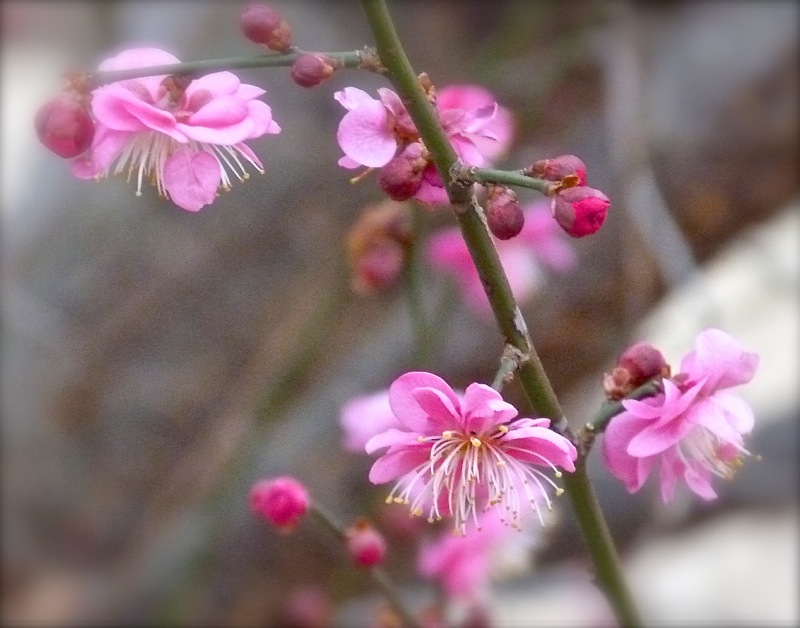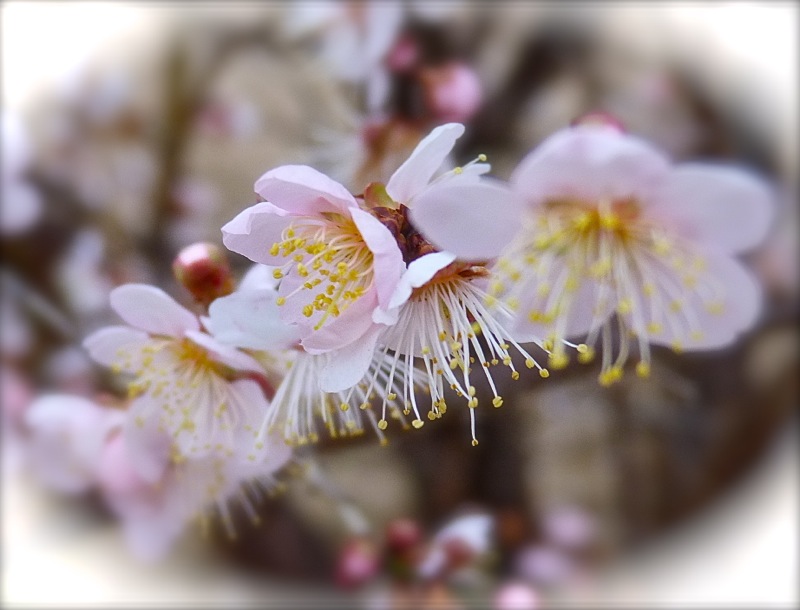Blooms, Berries, and Bark for Winter Interest
 Wednesday, February 12, 2014 at 6:00PM
Wednesday, February 12, 2014 at 6:00PM From across the drive into Aldridge Gardens I noticed the flowering apricots. I took a photo from a distance, but I decided a closer view could be worth it. The air was frigid, and low, gray clouds threatened to dump icy rain as I hauled myself out of the car and headed across the soggy lawn. Only a dedicated gardener, I thought...
I took a photo from a distance, but I decided a closer view could be worth it. The air was frigid, and low, gray clouds threatened to dump icy rain as I hauled myself out of the car and headed across the soggy lawn. Only a dedicated gardener, I thought...
WHAT IS THAT FRAGRANCE?
I smiled and congratulated myself on an unexpected reward, as a deliciously sweet, spicy clove scent welcomed my approach to the beautiful little trees in front of the entrance to the Gardens. These tough trees grow to about 15' to 30' tall and often nearly as wide; and their winter blooms, which can occur from December to early March, are a welcome sight in hardiness zones 6 to 8.
Prunus mume 'Bridal Veil' has a strongly weeping form and palest pink, semi double blooms, opening from pink buds:
Prunus mume 'Kobai' has semi-double, deep pink flowers:


Prunus mume 'Josephine' has pale pink, single blooms:
Blooms are alway a delight in the depth of winter, but I found other beautiful features at Aldridge Gardens, as I hurried through on business. Hurried? No, that is the wrong word! My feet slowed, and my camera automatically started shooting when I passed Ilex latifolia, AKA lusterleaf holly, full of brilliant berries:
Lusterleaf is one of those hollies that needs a male companion for fruit production. This one is obviously having a pretty good love life! The trees are good for wildlife, providing both food and shelter. These hollies do well in dappled shade at the edge of woodlands. They will grow in most soils in hardiness zones 7-9, but they need space, as they will grow up to 32' tall and about 16' wide.
Closer to the office, my ultimate destination, my feet slowed again. I am a lover of crepe myrtles, and I am always filled with joy to find a mature specimen that hasn't been "murdered". ("Crepe murder" is the term given to the bad habit of whacking crepe myrtles back to thick stubs in an effort to control their size.) This 'Natchez' crepe myrtle has been judiciously pruned over the years to allow it to reach its full potential:
While there is nothing prettier than a crepe myrtle covered with summer blooms, the sculptural quality of the tree and its peeling bark is an outstanding feature in the winter landscape.
So a quick visit to pick up papers turned into blessings from the garden. Winter interest is all around. We just have to keep our eyes open and let our feet slow a bit to appreciate it.
 Permalink
Permalink 